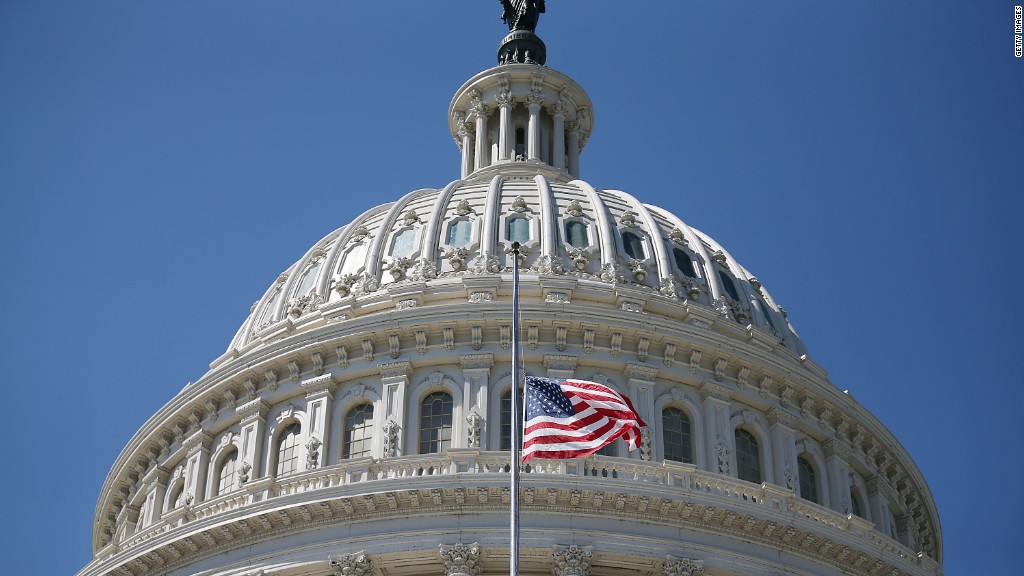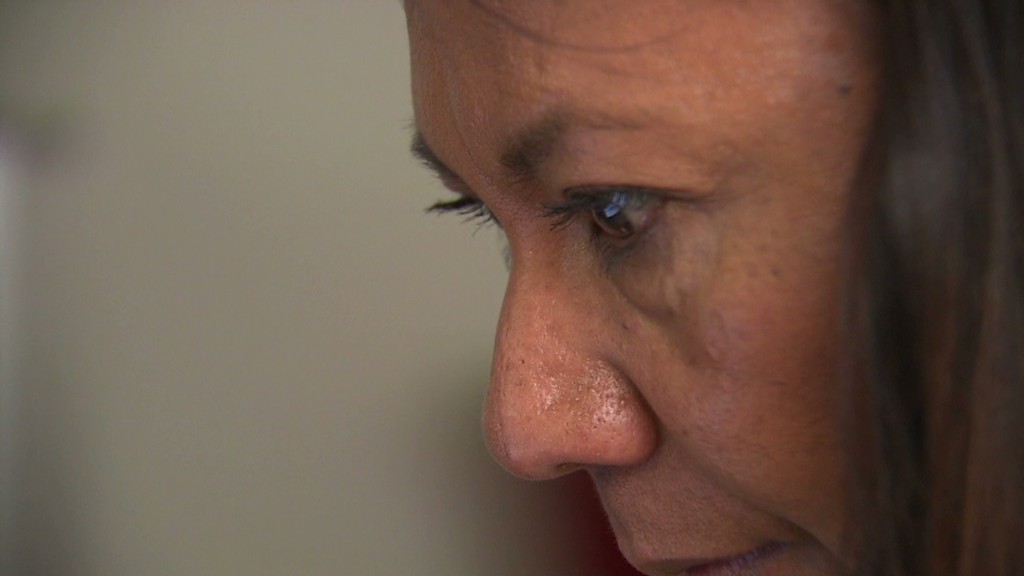
With just two weeks to go before the end of the year, the fiscal cliff remains unresolved and the country's debt is just $63 billion shy of the $16.394 trillion legal borrowing limit.
House Speaker John Boehner has offered to extend the debt limit for a year as part of a deal to avoid the fiscal cliff, a source familiar with the talks told CNN on Sunday.
But the offer comes with a serious condition. "Any debt limit increase would require cuts and reforms of a greater amount," said Boehner spokesman Brendan Buck.
Talks between Boehner and the White House are ongoing, and much remains publicly uncertain about any component of a possible deal.
But a one-year extension of the debt ceiling could require more than $1 trillion in spending cuts to meet Boehner's demand.
Related: Paychecks up in the air
While it's notable that Boehner has put the offer on the table, it by no means guarantees that a fiscal cliff deal will include a debt ceiling increase.
If it doesn't, it could be deja vu all over again.
Last year, political brinksmanship over the debt limit forced the budget deal that led to the cliff's automatic spending cuts. It also led to the downgrade of the country's credit rating and roiled stock markets.
Currently, the debt is expected to hit the limit in the next two weeks. Once it does, the Treasury Department has said it can temporarily continue to pay the country's bills through the use of "extraordinary measures," such as suspending investment in federal worker pensions.
But those measures won't buy much time.

The Congressional Budget Office estimates that Congress must raise the ceiling by the middle of February or early March.
Related: Perils of going over cliff temporarily
Barring an increase in the ceiling, Treasury would not be able to borrow new money to pay what the government owes in full and on time, thereby putting the country at risk of default.
If lawmakers and President Obama agree only to a partial fiscal cliff deal -- for example, by just extending the Bush tax cuts for the middle class and protecting them from the Alternative Minimum Tax -- they will leave investors and the economy in a tough spot.
"[That] would set up a nasty fight in the first quarter [over] the debt limit and entitlement cuts, even as it avoids most austerity and raises revenue through the tax code," Sean West, U.S. policy director at the Eurasia Group, said in a research note.
That fight, he said, would be "trench warfare."
But there's still a chance, West believes, that Congress and the White House could broker a bigger and better package even at this late hour.
"Our base case remains that a framework deal will provide a process for tax and entitlement reform; a debt limit increase for most of next year; and less than 2% of GDP fiscal drag in 2013," West wrote.
--CNN Chief White House Correspondent Jessica Yellin contributed to this report.


